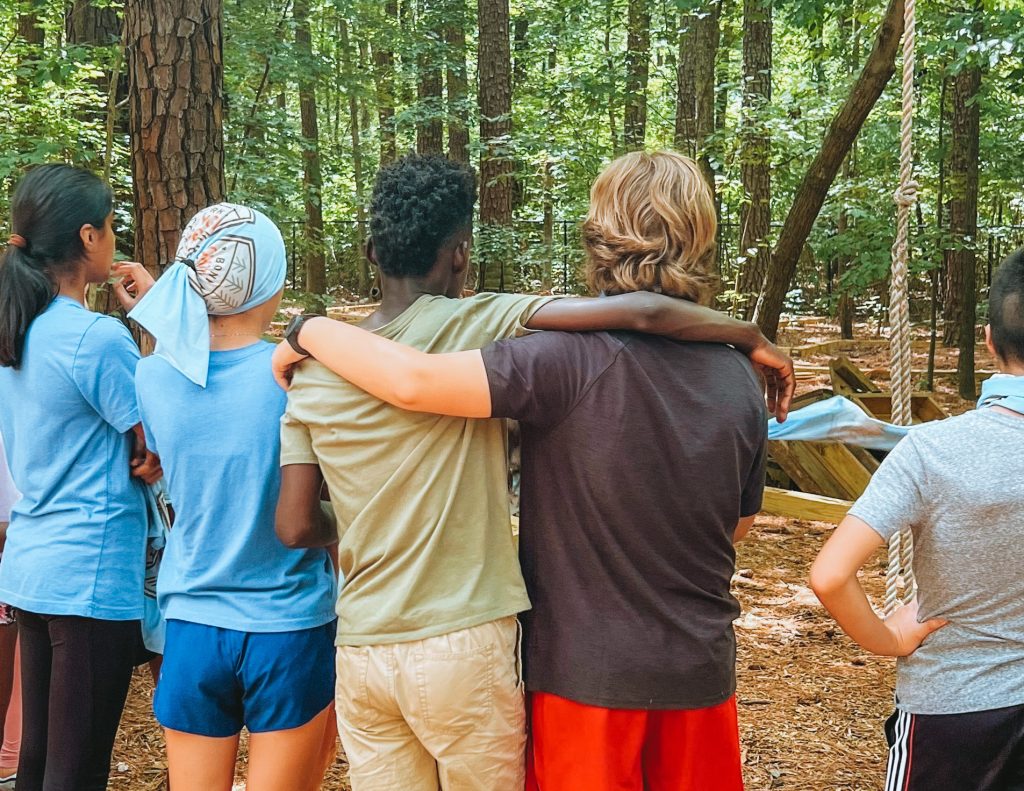What do we do when our children don’t get what they want? When they’re little, we coach them on the value of sharing, waiting their turn, or accepting the situation. If you are a parent of siblings, you’ve probably set multiple invisible timers to negotiate toy time between equally indignant children. You’ve heard ‘it’s-my-time-with-the-Xbox!’ and ‘I WAS HERE FIRST!!!’ I remember the days when one of my children ONLY wanted to practice the piano at the exact time that their sibling was practicing. Have you ever seen piano-bench wrestling? It’s not pretty.
But how about when they’re older? An adolescent? What happens when your child struggles with self-regulation when they don’t get chosen for a sports team, their arts major preference, or their first choice in an X-day activity?
They might seem mad or sad—even indignant; fear of rejection can wear many masks (and some, simultaneously). And, wow, can it be tough to parent a child through that, especially when, as parents, we might struggle ourselves with FOMO (a.k.a. Fear Of Missing Out. It’s a real thing, I promise).
Or maybe it’s not self-regulation they are struggling with, but rather: what if they’re struggling with a side effect of people-pleasing? It might stem from a fear of disappointing YOU, their parent, if they did not get or do something that was expected of them. How can you parent them through those choppy waters?
You can ask a parent of a first-year college student who is at their ‘second choice’ school and thriving. Or you can ask the parent of a child who was put into a random X-day activity last year and ended up loving it. Or Jay Sagrolikar ’21 who was placed in band as his second-choice arts major in the 6th grade and ended up being one of our school’s most prolific and joyful saxophonists, completing multiple independent studies and performing as a key player in a newly formed jazz band. His band teacher wrote
Jay, Xavier, and Marvin all stopped by at the start of this school year just to jam a little bit together and be in the band space. Wonderful young men who have definitely found a passion in their gifts of music. Here is a short video of what they were playing around with that morning. Warmed my heart for sure!
There are lessons to learn here that go well beyond placement. Parents who have experienced such challenges and have experienced any measure of success have reported that they did a few things:
- They let their child feel their emotions—whatever those were.
- They sought their child’s permission to discuss the disappointment and their feelings about it.
- They discussed it without shame or judgment, approaching the issue with curiosity and empathy, including that it’s okay to have “wants”.
- When their children felt like a victim of ‘not being selected,’ they kept the focus on things in their child’s control, like attitude and enthusiasm.
- If it wasn’t life-threatening, they didn’t jump in to fix it.
- Worth repeating: if it wasn’t life-threatening, they didn’t jump in to fix it. (It’s hard, I know.)
- They asked their children for their suggestions on how to move forward, opening an empowering space for their kids to flex agency, figure out self-advocacy, and practice problem-solving.
In short, all found success when the parents signaled that their kids could handle their disappointment and when they stopped assigning judgment to their kids’ feelings. It’s totally normal to feel sad and disappointed and bummed—yes, it makes us parents uncomfortable, but there are no such things as ‘bad’ feelings.
I know it can be hard to watch your child sit in discomfort, to resist the urge to swoop in and manage a situation or “fix” it on their behalf. However, I promise that there is something extremely valuable in finding safe, low-stakes ways for your children to experience disappointment and find acceptance of an outcome different than what they had planned and envisioned. In a recent podcast entitled How to Raise Untamed Kids, Dr. Becky Kennedy talks with Glennon Doyle and her pod squad (We Can Do Hard Things) about these very topics.
Of course, I’m not talking about ‘settling’ in a marriage or a career or anything like that. Rather, having a mild-to-moderate disappointment is a chance to understand that sometimes, for reasons that may be as random as a lottery, life deals you your second choice–and that you will be just fine, perhaps even better for it. It can also present an important opportunity to practice breaking the bonds of people-pleasing, which plague so many of us adults.
You might be saying, “But Josette, my child has had her fair share of disappointments.” And there are undoubtedly heavy sighs when we recognize societal disappointments, like how COVID shaped the last few years of these children’s social lives. But if we are genuinely looking to celebrate authentic success, let’s start by recognizing the value in building a worldview in which our children are sometimes the main character and, other times, a supporting crew. After all, it is in those alternate outcomes, second choices, and “disappointments” that resilience and flexibility are forged. And these are skills you want your kids to have in spades when larger challenges and disappointments come their way. By granting a space for your children to experience and process a disappointment, you are arming them with the confidence and knowledge that, when things don’t go their way, they can handle it—that they’ve “got this.”
And that is how disappointments don’t become setbacks, but new opportunities.

